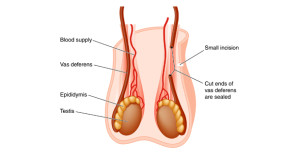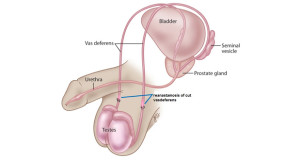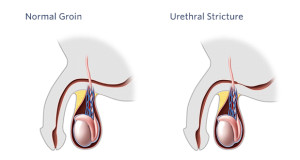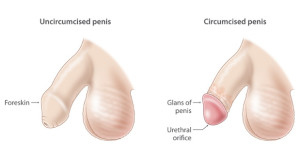Dr. K. Ramesh gave a guest lecture on Current Trends in Urology at the Ghana Urology Association, Kumasi, Ghana on 25th July 2015.
Read More »Blog
Vasectomy
Vasectomy is also called male sterilization. Vasectomy is done by blocking the tubes that carry the sperm from testis to the penis. Following vasectomy male semen will not contain sperm to fertilize the women’s egg. It takes 30 minutes to do the surgery and it is minimally invasive without any significant pain. It can be done as day care surgery. ...
Read More »Vasectomy Reversal
Vasectomy is a male sterilization done blocking the tubes that carry sperm from the testis to the penis. Vasectomy reversal is restoring the passage of sperm from testis to the penis. Vasectomy reversal is also called vasovasostomy. Vasectomy reversal has 50% success rate when done within 10 years of vasectomy and it drops to 25% if done after 10 years. ...
Read More »Urologist
A urologist is a surgeon who operates for diseases of the urinary tract and the male reproductive system Specializes in disease of Bladder Urethra-tube that brings urine out of the bladder Ureter- pipe that connect the kidney to the bladder Kidneys Adrenal glands Epididymitis- which stores the semen Penis Prostate Seminal Vesicle Testis Urology is commonly regarded as a surgical ...
Read More »Urethral Stricture
The urethra is the opening that allows the passage of urine from the bladder. Urethral stricture refers to narrowing of the urethra. Any inflammation of urethra can result in scarring, which then can lead to a stricture or a narrowing of the urethra. Causes of urethral stricture Trauma from injury or accidents with damage to the urethra Pelvic fracture ...
Read More »Circumcision
Surgical removal of skin covering the tip of the penis is medically called circumcision. Risks (Usually minor common in young) Narrowing of the opening common in children. Advantages Hygienically better Reduces the risk of urinary infection Reduces the risk of sexually transmitted infection Reduces the risk of penile cancer Medical benefits outweigh the risks. FAQ Can it be done in ...
Read More »Andropause
Aging men undergo hormone changes leading changes in sexual function, physical features and quality of life, called male menopause or andropause. The changes are due to progressive decline in testosterone production. Common symptoms Fatigue Reduced muscle mass Erectile dysfunction Loss of libido Incidence 30% of men between the age of 60-70 70% of men 70-80 years of age have low ...
Read More »CONS OF ROBOTIC SURGERY
High initial capital expenditure costs and high costs for robotic instruments that have a limited life span and therefore have a recurring cost for each case. The surgery initially requires extra time and manpower. With proper training, the surgeon can become very proficient quickly, and operative times will drop. Are robots more effective than laparoscopic surgery? Robotic surgery is essentially ...
Read More »THE FUTURE OF ROBOTIC SURGERY
Many of current advantages in robotic assisted surgery ensure its continued development and expansion. For example, the sophistication of the controls and the multiple degrees of freedom afforded by the Zeus and da Vinci systems allow increased mobility and no tremor without comprising the visual field to make micro anastomosis possible. Many have made the observation that robotic systems are ...
Read More »PROS OF ROBOTIC SURGERY
Robotic surgery has as many risks as open and laparoscopic surgery. However, the risks are different. Let us discuss in detail about the purported advantages of robots and see whether the arguments made by the manufacturers and proponents of robotic surgery are valid. 1. The most common argument in favor of robots is that they make the surgery minimally invasive. ...
Read More » Urologist in Chennai | Robotic Urologist in India | Chennai Urology
Urologist in Chennai | Robotic Urologist in India | Chennai Urology










